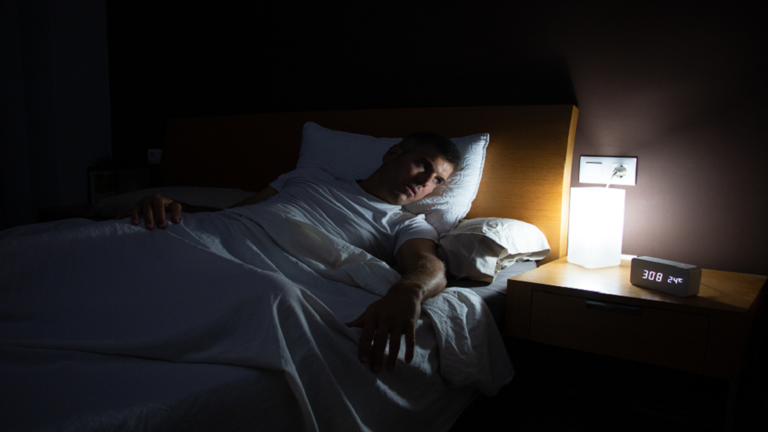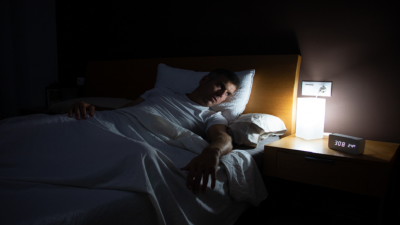Some people occasionally struggle to get a good night's sleep for various reasons, including waking up in the middle of the night and fighting to return to sleep. This issue can be frustrating, especially when it takes a long time to fall asleep again, due to anxiety about missing the alarm. To help you get back to sleep without taking too much time, here are some tricks you can try. Experts reveal six methods that may assist you in returning to slumber:
1. **Only Use the Bathroom When Necessary**
Dr. Michael Breus told Business Insider that you should stay in bed if you wake up at midnight and need to go to the bathroom. Although you might want to empty your bladder, the trick of staying in bed is to keep warm. If you leave the warmth, your heart has to pump more blood throughout your body. A lower heart rate is needed during rest to sleep, which is hard to achieve if you're moving, such as going to the bathroom.
2. **Stop Watching the Clock**
When many people wake up at midnight and cannot fall back asleep, their first instinct is to look at the clock and mentally calculate how many hours are left before the alarm goes off. Dr. Michael suggests avoiding checking your phone at all costs because the anxiety from looking at the time can keep you awake longer.
3. **Cut Out Alcohol**
For many, having a glass or two of wine is part of the bedtime ritual, but it can actually ruin the quality of sleep because alcohol inhibits tryptophan, an amino acid that helps with sleep, from reaching the brain. Professor Malcolm von Schantz from the University of Surrey explains, “Alcohol has a strange effect in that it makes it easier to fall asleep but makes it harder to stay asleep and affects the quality of our sleep.”
4. **Keep Pets Off the Bed**
You should not allow your pets in bed, as this practice can hinder your ability to get a good night's sleep—not only due to their restlessness but also because of shedding, which can worsen allergies or asthma for those who are susceptible.
5. **Cool Down**
While having a warm and cozy home can be comfortable in the colder months, it can actually disrupt sleep. Central heating systems dry out mucous membranes, making you feel thirstier at night. Dr. Neil Stanley, former chair of the British Sleep Society, explains that the ideal temperature for a good night’s sleep is 18 degrees Celsius or lower. You need to lose about 1 degree Celsius from your core temperature, which is around 37 degrees Celsius, to sleep well. If you're in a room that is too warm, your body will struggle to dissipate the excess heat, making your sleep restless.
6. **Calm Your Mind**
To help ease the process of falling back to sleep, the National Sleep Foundation recommends trying meditation. They state, “Learning to calm your mind can be a useful skill, whether navigating stressful daytime periods or sleeping at night. If you haven't tried it before, begin by sitting quietly and focusing on your breath for at least two minutes. You can also explore apps that can help with this.” Experts also recommend engaging in more exercise, as regular exercisers tend to fall asleep faster and have healthier sleep patterns.




